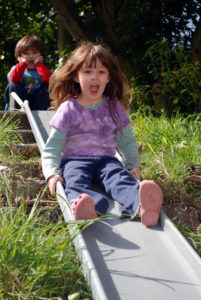“Oh my!” you say. Stop chasing happiness and choose joy? If I am not happy, won’t I be sad?
No. No you won’t be. Chasing happiness causes inexhaustible discontent.
Like all emotions, happiness is fleeting. Here one minute, gone the next. You already know this. Perhaps you remember it from childhood, or you see it in your children. Happy one minute, unhappy the next. Like most other feelings, happiness is often dependent on our circumstances, on our mood, on our subjective perception of how life is treating us in this moment.
Chasing happiness causes inexhaustible discontent.
If you google happiness, you will find millions (yes, millions) of articles, websites, and social media posts telling you what you must do to find happiness or to be happy. You could spend the next month looking for the secret code to happiness. However, if you are having a bad day, month, or year, happiness may elude you. So just where is that secret code?
I do not think there is one.
But joy is a different matter all together.
Joy is a spiritual reality that already exists and our task is just to open up to it. In this way it is like the reality of other spiritual forces: forgiveness, hope, faith, and love. Realities like inclusiveness and compassion. What if we focused on the deep, spiritual quality of joy that transcends happiness, transcends sorrow, and transcends other more fleeting qualities in our lives? If we focus on one spiritual reality such as joy, do we more easily open to all the spiritual realities?
Joy is a spiritual reality that already exists and our task is just to open up to it. Click To TweetIn her book, All Joy and No Fun, author Jennifer Senior tackles the issue of happiness and joy in the context of child-rearing. Parenting surveys show that children actually do very little to increase a parent’s happiness. Joy, however, was the emotion that was not measured, according to Senior. If you are expecting children to make you happy, you are indeed in trouble. If you are expecting to learn a lot about joy, you are headed in the right direction.
Not long ago during a drive to the mountains, my husband and I had a long, intimate conversation about the difference between joy and happiness. Later that evening, we asked our friends to weigh in on this matter.
Here are a few of our thoughts:
“I think joy has a spiritual quality. If feels qualitatively different than happiness.”
“Happiness seems fleeting, maybe a little more superficial. Joy is deeper.”
“I feel joy when I am with certain people. With my best friends and family, I have that feeling of deep joy, no matter what happens when we are together.”
“I remember feeling a deep sense of joy when I watched our daughter dance and play the piano. Is joy  connected to pride? Knowing your children are doing well and growing up well…I think joy connects to that.”
connected to pride? Knowing your children are doing well and growing up well…I think joy connects to that.”
“Joy is connected to gratitude. Often when I am grateful, I feel joy at the same time.”
Moments of joy were shared, most of which were connected to having an awareness of an expanded sense of the meaning of life. It was a sense of “this is really important” or a sense of being connected to something much bigger than just the present moment.
Joy is that sense of being connected to something much bigger than t he present moment.
More examples:
I shared the deep joy I felt at my mother’s deathbed. Surrounded by her husband, children, and most of her grandchildren, we prayed in a circle around my mother and sang a few songs. She died peacefully with us there. Certainly, I was not happy. My grief was intense. And yet, I felt a profound sense of joy. At that moment I felt connected to a Holy Mystery much bigger than I am. I felt connected to my family, and I felt sure that all would be well. My inner clarity was grounding to me, and I was so very grateful.
As the conversation deepened, we shared about joy at camp, joy during worship, joy at rituals like weddings, bar mitzvahs, and baptisms, and joy during sickness and healing. We shared lines of hymns and poetry that used the word joy. For example, “Joyful, joyful we adore thee, God of Glory, Lord of Love.” “Joy to the world, all the boys and girls.” Joy also seemed intricately connected to hope, and in some ways, to optimism. Especially relevant to me was that we had very little conversation about happiness. In the face of joy, happiness seemed so much less important.
How can you choose joy?
- Stay present and mindful. In difficult times, help is often right in front of our eyes, if we could see it. Therefore, open your spiritual eyes when things seem bleak, and in that very moment, notice what is being given to you.
- Look for what is right. Maybe even count the things that are right. (Hint. An upcoming blog will focus on this.)
 Put yourself in situations that you know ellicit joy. Connect with people you love, listen to music you enjoy, count your blessings, read a good book, dance, pray, meditate. Consider downloading our free e-guide now about firing up your life. It is full of helpful suggestions in this area.
Put yourself in situations that you know ellicit joy. Connect with people you love, listen to music you enjoy, count your blessings, read a good book, dance, pray, meditate. Consider downloading our free e-guide now about firing up your life. It is full of helpful suggestions in this area.- Open yourself to and cultivate other spiritual qualities. For example, compassion and forgiveness are both realities that exist if we have the eyes to see and the ears to hear.
I invite you to join me in focusing on all spiritual qualities but especially on joy in 2018. We have more opportunities to focus on joy the messier things are, so fear not. Whatever the year holds for you, know that joy will be right in front of your eyes. And that, my Friends, is marvelous.
Amy
 Amy Sander Montanez, D. Min., LPC, LMFT has a private practice of individual psychotherapy and marriage counseling in Columbia, SC. Her book, Moment to Moment: The Transformative Power of Everyday Life, won Spirituality and Health’s top 100 books of the year. Amy is passionate about many things in life, but especially about psychology, spirituality, dancing, cooking, marriage, family, friends, traveling, and learning. www.amysandermontanez.com
Amy Sander Montanez, D. Min., LPC, LMFT has a private practice of individual psychotherapy and marriage counseling in Columbia, SC. Her book, Moment to Moment: The Transformative Power of Everyday Life, won Spirituality and Health’s top 100 books of the year. Amy is passionate about many things in life, but especially about psychology, spirituality, dancing, cooking, marriage, family, friends, traveling, and learning. www.amysandermontanez.com


